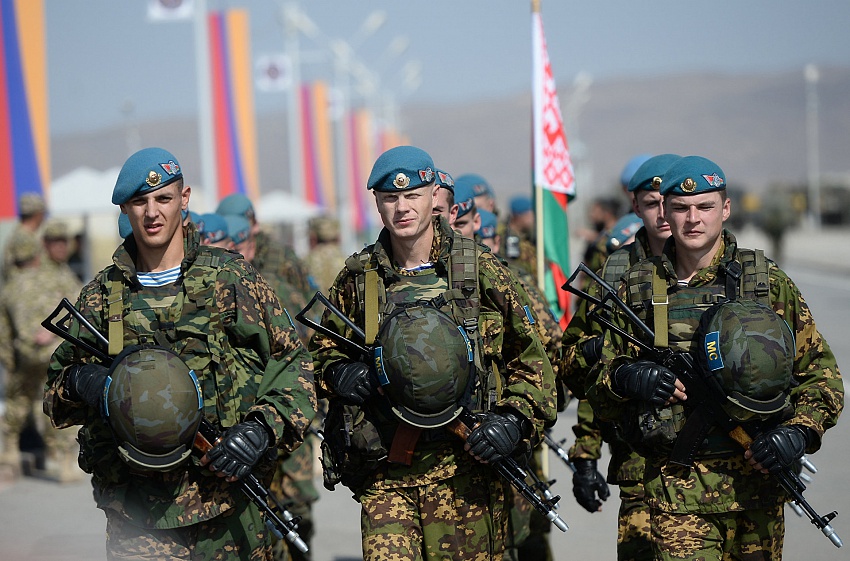Peacekeeping as a political PR campaign
 The situation has not changed
The situation has not changed

Minsk has no real intention to significantly enhance participation in peacekeeping operations. The Belarusian authorities only speak about this to promote Minsk as a place to hold talks on security issues in Europe.
On September 26th, 2019, President Lukashenka gave an extensive interview to the Ukrainian media, during which he reiterated Belarus’ readiness to assume control of a 400-kilometre stretch of the Russo-Ukrainian border in the Donbas region out of Kyiv’s current control. Both Russia and Ukraine must endorse Belarus to send her troops to the south-east of Ukraine, which implies that Belarus treats Russia as a party to the conflict.
Since 2014, Belarus has hardly undertaken any significant efforts to build her peacekeeping potential. As of now, her peacekeeping capacities include a company of Special Operations Forces, a medical unit, and national army staff officers capable of operating under the UN auspices. In addition, the Interior Ministry can assign a platoon. In total, Belarusian peacekeepers make some 300 people. If necessary, Belarus may participate in a humanitarian demining mission. The State Border Committee does not have peacekeeping units at all.
Currently, nothing is known about Belarus’ plans to increase human and other capacities of the Belarusian peacekeeping contingent.
It goes without saying that exercising effective border control over a 400-kilometre stretch with existing Belarusian peacekeeping forces is virtually impossible. Lukashenka, who is well aware of border guard’s specifics, must be aware of that. In addition, he must know about Kyiv’s firm stance about the inadmissibility of CSTO military personnel’s participation in the peacekeeping mission in the Donbas. Hence, his statements about Belarus’ readiness for a large-scale peacekeeping mission in southeastern Ukraine are nothing but politicking. His likely goal is to strengthen Minsk’s position as a possible pan-European centre for developing new European security architecture.
Subscribe to our newsletter




Situation in Belarus
Constitutional referendum: main consequences


 Video
Video
How to count the political prisoners: are the new criteria needed?


 Video
Video
Paternalism In Decline, Belarusian Euroscepticism, And The Influence Of Russia


 Video
Video












